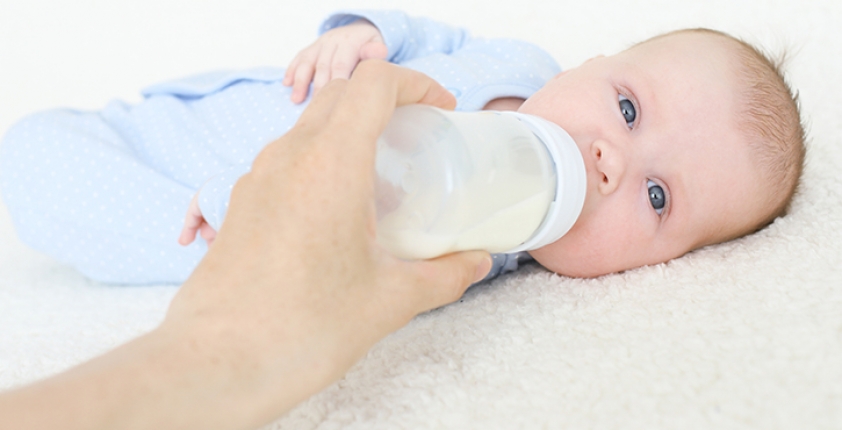
The first four months
Infants who drink their fill of as much milk as they want to regulate their own diet. This means that parents should not insist on a specific feeding schedule and should not have preconceived ideas about how much milk their baby should drink at each feeding time.
They have to be patient and to be guided by their child’s habits such as how long they sleep and how often they want to be fed. It is natural for a new-born baby to want milk every two hours or even more frequently, not every three hours. If that continues after your child is a month old, then you should think about whether you are making up enough milk for your child. You can discuss this with your pediatrician. The amount of milk your baby needs will increase as he/she grows. Every time you feed your baby, the bottle should have enough milk for him/her to drink his/her fill and for there to be 30 to 40 grams left.
If your infant is getting enough milk, he/she will stop wanting to feed during the night at some time during the second month. He/she will take all his/her feeds between 6 am and 10 pm. In this way, parents can set up a daily schedule of five feeds, such as :
morning 6 - 7, 8 - 10
afternoon 12 - 2, 5 -7
evening 8 - 10
The times set for this daily schedule should not be hard and fast. For this reason, as the table above shows, they should be given at some point during a one or two-hour interval. So, the baby should not be fed exactly at 6 or 8 or 12, but sometime between 6 - 7, 8 - 10, 12 - 2 etc. This “give and take” in the schedule reflects infants’ natural behaviour.
Fifth and sixth month
The transitional period during which milk remains the infant’s primary food, but begins not to be its only food, starts during the 5th month. During this period, other foods (called solid foods by pediatricians as opposed to milk which is a liquid food) are introduced to the baby’s diet. These foods are powdered baby foods, fruit purees and soups (vegetable soups and meat soups). The first solid foods which can be given to babies are powdered baby foods made from rice. Rice is the food which is least likely to provoke allergic reactions in infants. For this reason, rice flour (Rice Cereal) is the first solid food that can be included in a baby's diet.